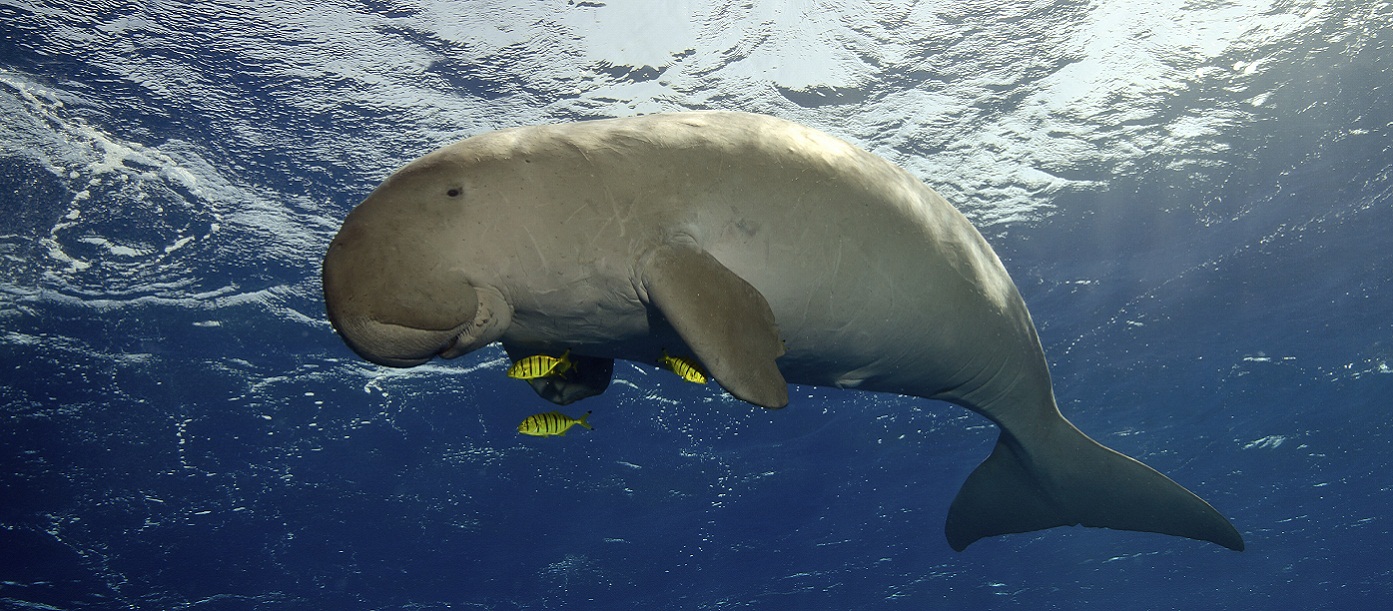Answering the SOS call from the wild: dolphins, rhinos, tigers and others to benefit from more funding
Gland, Switzerland, 22 November 2012 (IUCN) Flagship species conservation initiative Save Our Species (SOS) is expanding its work with US$ 2.5 million funding for 25 new projects.

Photo: Christian Schlamann /istock photo
Dolphins, dugongs, manatees, gibbons, rhinos, tigers and many other lesser known yet similarly threatened species such as river turtles, Asian crocodiles, flying foxes, myriad freshwater fish and plant species are going to benefit from what will be the second round of species conservation projects within the SOS initiative – a global coalition initiated by IUCN (International Union for Conservation of Nature), Global Environment Facility (GEF) and the World Bank.
“The latest injection of US$ 2.5 million doubles the number of active SOS projects but much more needs to be done in the field of species conservation,” says Jean Christophe Vié, Deputy Director of IUCN’s Global Species Programme and SOS Director.
“Every year we receive more project proposals than we can possibly fund and the selection process is extremely challenging. “With more funding available from a broader range of sponsors and donors, we can be much more efficient in addressing the current biodiversity crisis. That is why we are ramping up our efforts in promoting SOS to individuals and companies alike with the possibility to make online donations while also engaging with several progressive industry leaders.”
This announcement comes a few weeks after the meeting of the Convention on Biological Biodiversity in Hyderabad where 193 countries discussed ways of honouring their engagement to preserve the diversity of life. It also follows the publication of a recent report in Science, calculating the cost of improving the status of threatened species until 2020 at approximately US$ 4 billion annually, just 1% of the value of ecosystems being lost every year.
The new SOS projects will be implemented by NGOs across the Americas, Africa and Asia, starting immediately. They will focus on a broad range of species groups that have been assessed by the IUCN Red List, including small marine mammals, freshwater African fish, tropical terrestrial Asian vertebrates and cycads – one of the world’s oldest plant groups. The projects will address conservation needs of some of our most threatened species such as the vaquita, the world’s smallest dolphin which is Critically Endangered in its only home, the Gulf of California or the Javan and Sumatran rhinoceroses, also in urgent need of support and protection.
According to The IUCN Red List of Threatened Species™, one in three amphibians, one in four mammals and one in eight birds are at risk of extinction in the wild.
Through its species-focus approach, SOS aims to stop biodiversity loss and increase resources for biodiversity conservation. IUCN manages the initiative by channelling resources to fund the best projects undertaken by civil society around the world – projects which are technically sound, well designed, cost effective, have a good chance of success, and which explain conservation in an engaging way to the public.This is achieved by leveraging IUCN’s in-depth knowledge base. To date SOS projects have worked with more than 150 species listed as threatened on The IUCN Red List of Threatened Species™, positively impacting wildlife as well as local communities.
“We invite everyone who is interested and passionate about protecting the world’s animals and plants to join us and help answer the SOS call from the wild, so that we can do more for the amazing diversity of life on our planet on which our own lives depend so dearly,” says IUCN Director General Julia Marton-Lefèvre.
Quotes from our donors
1. Dr. Naoko Ishii, CEO and Chairperson of the Global Environment Facility says
"With this new and exciting batch of projects, SOS scales up its reach to the front lines of the battle to save globally threatened species," said Dr. Naoko Ishii, CEO and Chairperson of the Global Environment Facility. "This is not only a moral agenda, since, by protecting species, we are benefitting people and communities across the globe. While the GEF is still the single largest financial contributor to SOS, we are most impressed by the growing interest of other donors in joining the initiative. This expanded base of support continues the mobilization of resources for the highest priority in the biodiversity field globally -- putting a stop to the extinction crisis."
2. Sari Soderstrom - Sector Manager, Agriculture and Environmental Services Department, The World Bank says
"Species matter to the World Bank’s mission of ending poverty. Millions of people depend daily on the safety net that nature provides. For vulnerable communities, nature helps build resilience against emerging global threats from water scarcity to climate shocks. We welcome the on-the-ground action and results focus that SOS brings and look forward to seeing the benefits from these new projects."
3. François-Xavier Duporge, FFEM Secretary-General says
“SOS is a great opportunity for Africa and we hope to see more good proposals to support biodiversity conservation challenges faced in this continent.”
4. Markus Terho, Head of Sustainability for Nokia, SOS longest standing corporate sponsor says
"I am delighted to see SOS growing with continued success in the fields of conservation and general public awareness. For Nokia this special relationship is an important symbol of our commitment to suppoort nature conservation work and increase biodiversity awareness worldwide. We joined SOS as biodiversity is a very important topic for society and a key emerging issue in environmental protection. Through SOS we also hope to leverage a variety of knowledge products and initiatives that use the power of mobile technologies for both research and education."



